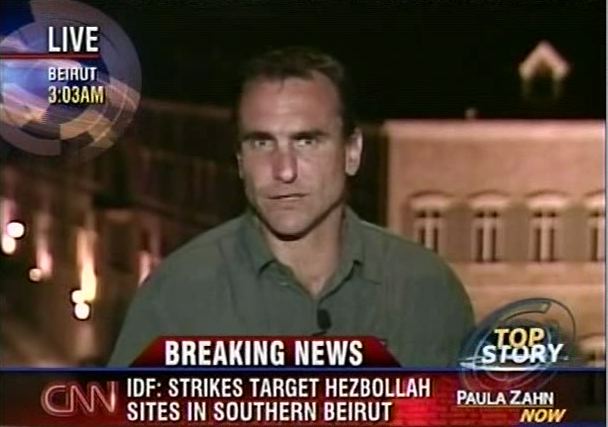PZN: More on the bombardment

Click photo to play
Length: 3:52
PAULA ZAHN, CNN ANCHOR: Let's get straight to Beirut, under air attack once again tonight by Israel.
Correspondent Michael Ware is there.
Michael, we saw what happened when you heard those explosions just about 45 minutes ago. Have you heard anything since then?
WARE: Well, we had the resumption of the Israeli air campaign against Hezbollah targets here in Beirut, the capital of Lebanon, as you say, about 45 minutes ago. Since that initial burst of four massive detonations, nothing so far has followed.
However, we have seen that, on these occasions, these attacks can roll on throughout the night. So, we will just have to wait and see, Paula, what the Israeli air force has in store this evening.
ZAHN: And do we have any idea, from the direction in which you heard these explosions, what they might have been targeting?
WARE: Yeah, we have already heard from the Israeli Defense Forces. And it was fairly patently clear, from the direction of the blast, that it was in the traditional strongholds within the capital of Hezbollah, in the city's southern suburbs.
I mean, clearly, we have no indication yet of what the specific targets were. And, quite frankly, in all eventualities, we will not learn from the Israeli Defense Forces what it was they were seeking to hit.
However, most likely, they were targets of opportunity, based on actionable intelligence, given the level of destruction within this part of this city. Given that entire blocks of high-rise apartments have been brought to their knees, reduced to rubble. There's very little infrastructure, per se, within these areas to target.
So, most likely, they have identified some kind of movement, or they have specific, actionable intelligence leading them to either personnel they're trying to eradicate or to materiel they're trying to destroy -- Paula.
ZAHN: Right now, I want you to take us further north of there, closer to the Syria border, to Baalbeck. You have some late information on that raid that took place, apparently at a hospital, the Israelis claiming they killed five and captured -- excuse me -- killed five and captured 10.
WARE: Yeah, Paula, what the Israeli Defense Force is saying is that they captured five Hezbollah fighters during this lightning strike, this deep strike, into the Hezbollah heartland.
They also say that they can account for the deaths of 10 people, all of whom they say are Hezbollah fighters. Now, as is so often the case in these circumstances, in war, the stories conflict. We went out to Baalbeck, within the Hezbollah stronghold of the Bekaa Valley, today. We made the drive. We went into the Hezbollah domain. There, we saw the aftermath of this operation by Israeli commandos. And we spoke to the people on the ground there.
Now, they, in fact, say that 16 people died. They disagree with the Israeli Defense Force and claim that these 16 people were all civilians. There's also 12 people who were wounded. I went and interviewed or spoke to three of these people in the hospitals in Baalbeck, two of whom were fairly seriously wounded, one of whom was critically wounded.
Sadly, the local authorities are reporting that many of the deaths were children. It seems that, within the fight, as it unfolded, Israeli close-air support was called in, and it may appear that there was some civilian deaths as a result -- Paula.
ZAHN: Michael Ware, thank you for clearing up some of the confusion over those numbers.
Once again, I want to reconfirm what Michael just said, the Israelis saying they captured five, killed 10.
